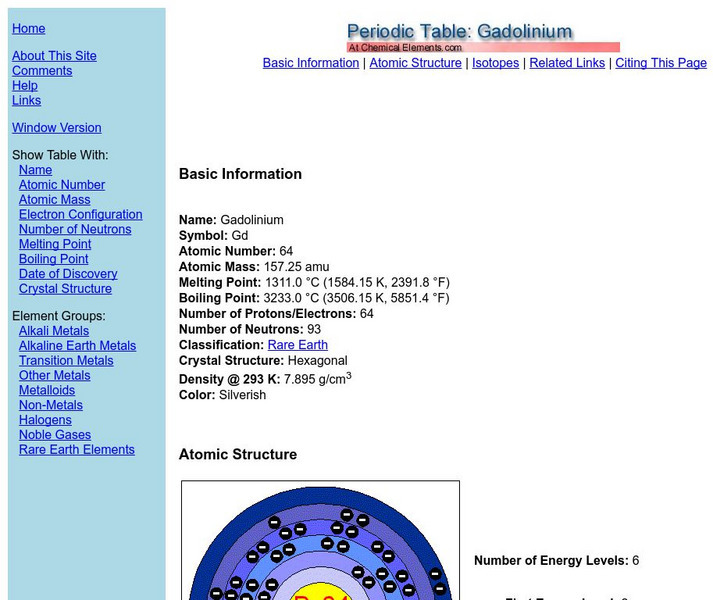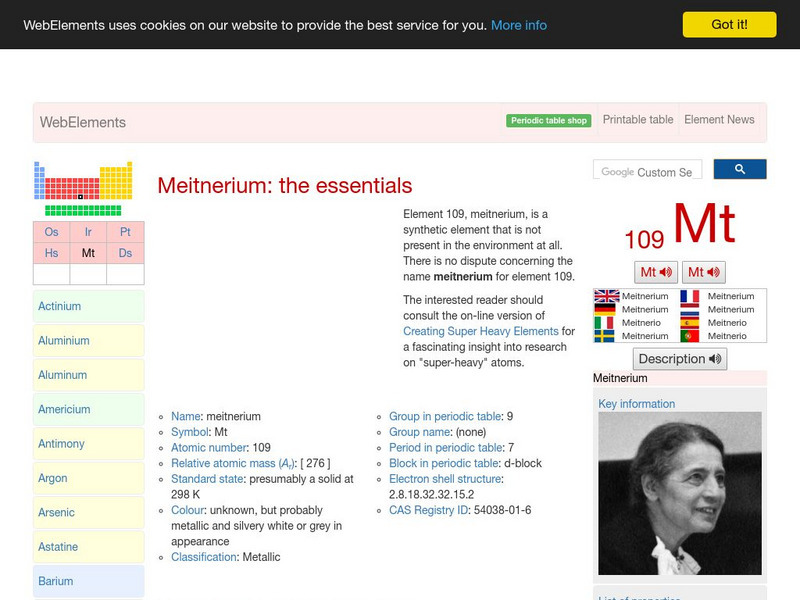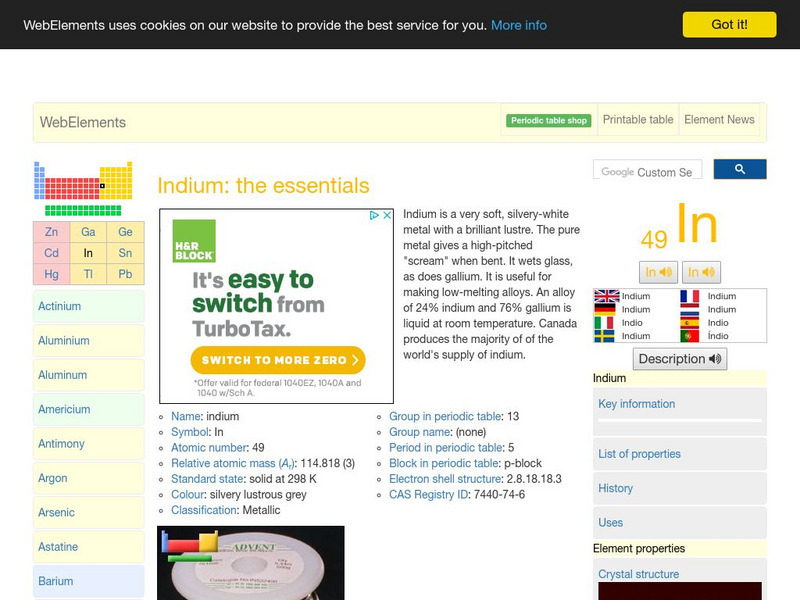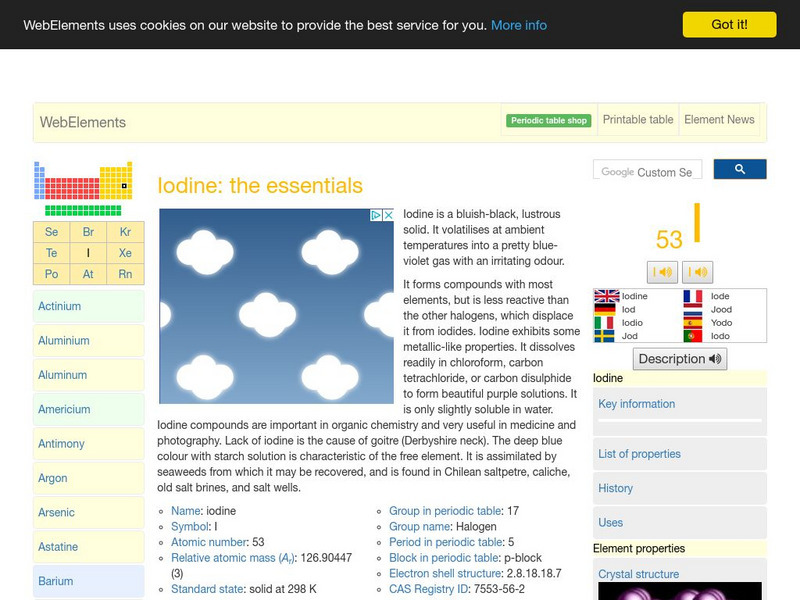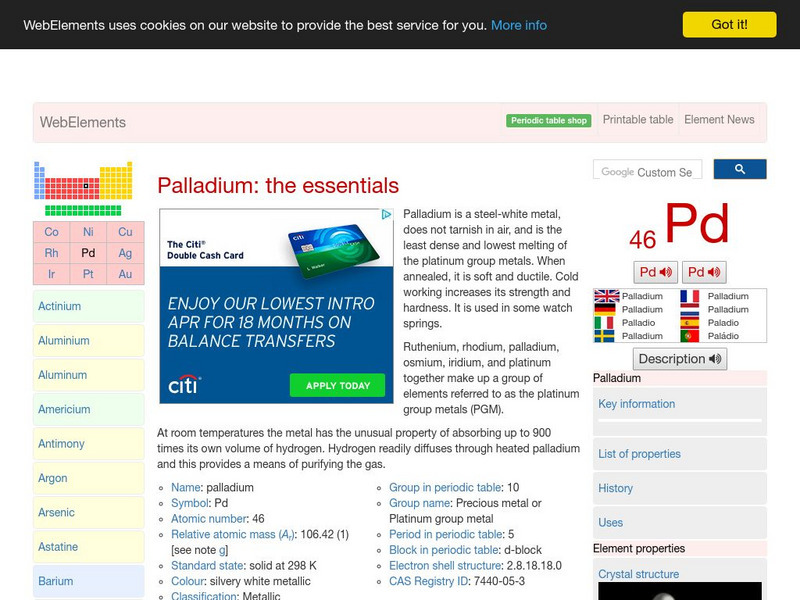Curated OER
CAN'T TOUCH THIS!
Young scholars discover the best practical shielding material when dealing with radioactive substances. They draw conclusions based on availability of materials, price, and best shielding properties.
Curated OER
General Science Quiz
In this science activity, students write short answers for questions on planets, oceans, elements, and more. Students complete 20 questions.
Curated OER
The Connection Between Pigment and Light Colors
Young scholars explain the mole concept and use this concept to prepare chemical solutions of particular molarities.
Curated OER
The Right Chemistry
Students see that chemistry is the study of matter, how matter reacts and combines to create new chemicals, the changes that take place in matter and what makes up matter. This lesson plan provides many good ideas across the curriculum...
Curated OER
EGG-cellent POLYMER PACKAGING DESIGN
Students investigate the concept of a polymer using an experimental design of protecting an egg in a bookbag. They test the properties of polymers and form an educated solution to the proposed problem. Then they describe the steps used...
Curated OER
What's Matter?
Learners explore the definition of matter. In exploring matter instructional activity students get into groups and navigate the Internet to answer questions.
Curated OER
Forces And Energy
Students investigate the atom and how it is formed. They conduct research using a variety of resources and then construct a model of the atom. Then students have class discussion. The instructional activity includes background...
Curated OER
Bridge Cable Corrosion
Students investigate the corrosion of different materials in the lab. In this chemistry lesson, students construct a bridge considering different bridge designs. At the end of the lesson, they play the role of scientists and engineers...
Curated OER
Drought, nomads and the price of peanuts
Students read two short text items, which describe different approaches to agriculture. They describe the likely advantages and disadvantages of each approach for farmers, commercial peanut buyers, the government, nomadic herdsman and...
Curated OER
Globe Raider: Part I
Learners research a Spanish speaking countries using the Internet and other appropriate resources. They work in groups to complete a computer based treasure hunt before completing a Globe Raiders worksheet. They use the research...
Annenberg Foundation
Annenberg Learner: Interactives: Periodic Table
Learn the basics of the Periodic Table including how the Periodic Table is organized and how to make sense of the information included in the table. Test your understanding with an interactive quiz at the end of the activity.
Annenberg Foundation
Annenberg Learner: Interactive Periodic Table of the Elements
A fun way to learn about the periodic table! This interactive table allows students to investigate the basic information of an element as well as explore group and family characteristics.
Annenberg Foundation
Annenberg Learner: Interactives: The Periodic Table
An interactive website where students learn about the basics of an atom, periodic tables organization, and the structure and properties of matter. Module includes an introduction and five lessons that are followed by a quiz and an...
Soft Schools
Soft Schools: Periodic Table
This interactive periodic table of elements allows students to click on each element, and read essential information about that element. Chemical elements are also listed alphabetically for quick reference.
American Chemical Society
Middle School Chemistry: Periodic Table
Students explore the periodic table and learn the basic information given for elements: the name, symbol, atomic number, and atomic mass for each element.
Other
Chemical Element: Periodic Table: Gadolinium
Basic properties of the element Gadolinium Includes Bohr model.
Web Elements
Web Elements Periodic Table: Meitnerium
This WebElements site offers basic data, history and the story of the synthesis of meitnerium.
Web Elements
Web Elements Periodic Table: Indium
WebElements offers a very helpful assemblage of information on the basic chemical and physical properties of indium.
Web Elements
Web Elements Periodic Table: Iodine
A very nice WebElements site with all sorts of basic data on iodine, its chemical and physical properties, isotopes and uses.
Web Elements
Web Elements Periodic Table: Iridium
WebElements offers valuable information on iridium, with basic data, chemical and physical properties, electron arrangement and more. A helpful site.
Web Elements
Web Elements Periodic Table: Actinium
WebElements offers a nice set of basic data and information on the physical and chemical properties of actinium.
Web Elements
Web Elements Periodic Table: Arsenic
WebElements offers a very thorough listing of information arsenic, its uses and properties as well as basic data. very helpful.
Web Elements
Web Elements Periodic Table: Hydrogen
WebElements offers a nice summary of basic information on hydrogen. Very thorough and clear. Highly recommended.
Web Elements
Web Elements Periodic Table: Palladium
WebElements offers a good basic summary of data and descriptive information on palladium, along with a summary of how it is isolated.














